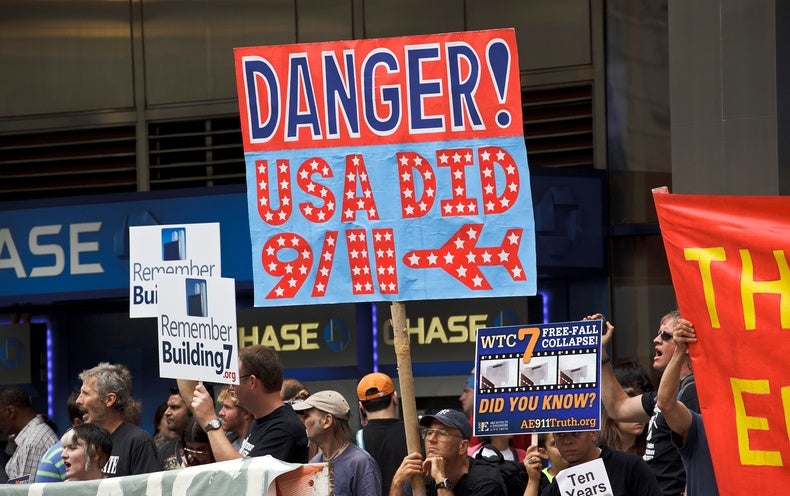All governments lie and distort to advance their agendas. But in recent American politics, it is fair to treat the current moment as an unrealistic and bizarre era. Most members of a political party have accepted an apparently fictitious world in which the 2020 elections were stolen by rampant election fraud by the Democratic Party.Timothy Snyder Called This fabricated conspiracy “big lie”. The rise of such blatant lies usually occurred recently, at the dawn of Donald Trump’s first campaign or the age of social media. But the turning point was actually 20 years ago, a direct consequence of the 9/11 incident.
exist Mother Jones, David Kang believes that the George W. Bush administration Paved the way The reason for the big lie is that its propaganda that Iraq possesses weapons of mass destruction constitutes its own “big lie.” More generally, one might think that the misinformation movement on the eve of the Iraq War itself was an early example of the “post-truth” era. It is undeniable that its impact on propagating false beliefs is extreme. Today, when it comes to our broken sense of reality and the rise of conspiracy thinking, we are very concerned about the role of social media and digital disinformation. But it’s worth remembering that in September 2003-five months before a website called thefacebook.com went live- Washington post Poll found Nearly 70% Of Americans think Saddam Hussein may have been at least to some extent personally Participated in the 9/11 attacks.
However, the distortion of the Bush-Cheney administration’s eagerness to war is different from the “big lie” of Trump’s Republican Party.As the historian Joseph Stib debate Correctly in Washington post, Different from the Bush administration’s propaganda, “Trump’s election robbery is not exaggerated and purely fictitious.” In other words, the Bush administration tried to deceive American citizens by distorting evidence and insinuating lies. When intent to deceive, people see their audience as reasoners who must be persuaded. In contrast, Trump and the parties under his control have simply fabricated a fictitious reality for use by his loyal audience. Trump’s “big lie” was never intended to be digested by anyone other than the leader’s staunch supporters. The big lie is not part of the argument. The big lie is an uplifting slogan.
So, how did the immediate post-9/11 era trigger our current politics? Some of the most trusted Americans in public life, such as Colin Powell, are accustomed to making extremely exaggerated and false claims to the public. Most mainstream media feel that it is necessary to give the government a much higher credibility than they promised to justify the Iraq war. When a democratic system is exposed to mislead the public as seriously as they do, it will lead to a crisis of legitimacy. In such crises, people are looking for charismatic leaders who can be trusted. The failure of the Bush administration made it possible for Trump to take over the Republican Party, because the success of Trump’s political style depends on a huge loss of public trust in the government and the media.
It is not just the decline in public trust that paved the way for what can be rightly called the prosperity of fascist politics. After 9/11, Muslims are seen as an existential threat domestically and internationally.Trump’s favorite government agency, ICE, is The product of the post 9/11 eraThe logic of militarized borders, having a huge “Department of Homeland Security” and designated internal police forces to protect “us” from “them” is the legacy of that era. It’s no wonder that social platforms take advantage of this rise of in-group and out-of-group mentality to adjust their algorithms to profit from powerful emotional triggers such as fear, anger, and disgust.
When democratic institutions are portrayed as corrupt and untrustworthy, fascist politics flourishes. It flourishes when people are taught to fear domestic enemies that are both foreign and insidious—whether they are Muslims, Jews (such as Nazi Germany), or other minorities. Social media and online influence operations provide platforms and fuel for the spread of conspiracy thinking. But it was in the post 9/11 era that its nativist anti-Muslim appeals, betrayal of public trust, and the failure of democratic systems led to a politics based on the cry of solidarity and belief rather than mutual negotiation policies. It lays the foundation for the future success of politicians who use our fears and encourage conspiracy theories (if not directly create them). This is how they push away democracy in pursuit of absolute power.
This is an opinion and analysis article; opinions expressed Author or author Not necessarily those Scientific american.
